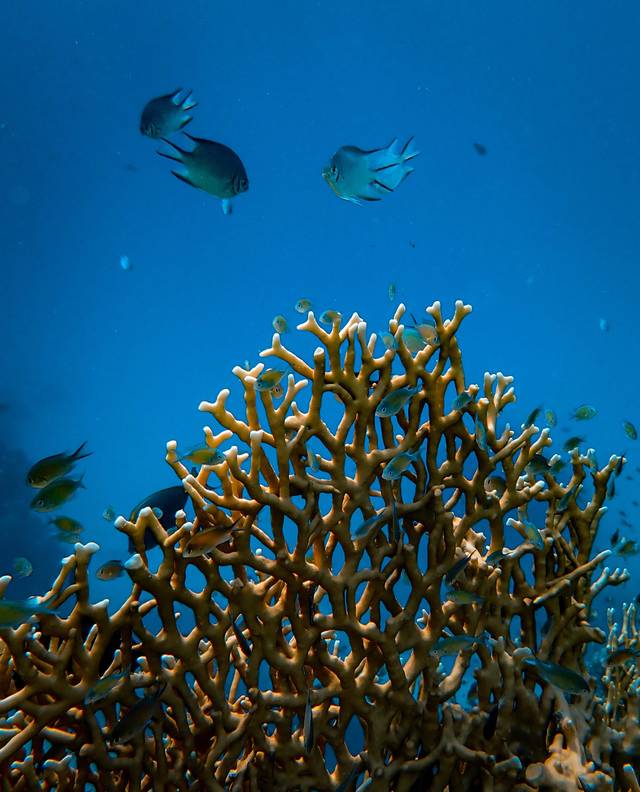
Alumni on the Move
Blue planet: How oceans are key to our survival on earth
We caught up with marine biologist Sheena Talma (Seychelles & RU, 2017) to find out about the health of our oceans, and what it’s like to be 300 metres under water.
You’re a science programme manager at Nekton, where the motto is “protecting our oceans to protect our planet”. How do oceans slow the climate crisis? Oceans help regulate the earth’s climate, acting as both a heat and carbon sink. We are seeing the effects of climate change through sea-level rise, coral bleaching and extreme weather events. Climate change can only be curbed if we decrease our consumption of fossil fuels and use sustainable sources of energy. We also need to ensure that important habitats and biodiversity that act as carbon sinks are not unsustainably exploited.
Most of us will never spend time underwater. What is one thing you wish everyone could see or experience? Being in a submersible is an extreme privilege. It’s like being inside a fishbowl where you are the fish, exploring the vast ocean around you. My lasting memories include the loss of light as you plunge into the depths, the schools of fishes and forests of corals, the change in life and landscape with depth, and the silence and peace that come with every dive. The damage I saw in some areas was disheartening: corals that had been bleached, evidence of overfishing and litter found at 300m. I would like people to see the amazing diversity of habitats and life juxtaposed with the man-made damages that we have caused.
Working in the environmental sector can be disheartening. What gives you hope? And what is your highest hope for our oceans in 50 years’ time? I am motivated by the number of people making changes in their lifestyles for the benefit of a healthier ocean and a healthier earth, and by the gradual transformation of the ocean space to be more inclusive of underrepresented groups. Within the next 50 years, I hope that we have:
- Better maps and understanding of our oceans
- Been able to put in place and also implement effective marine parks on the high seas
- Helped increase, and not decrease, biodiversity
- All developed an appreciation of the ocean and an understanding that we are all connected.
What is the biggest challenge faced by leaders in your field? The conflict between the requirements of sustaining a healthy ecosystem and the needs of economic development and survival. Overfishing, pollution, climate change and the threat of deep-ocean mining all stem from an unprecedented rate of consumption. Unfortunately, our society still does not reward the sustainable use of resources or take responsibility for the exploitation of our finite resources.
If you could be a marine creature – any creature – what would you be and why? I would be a fish! Preferably not one that gets caught. We can learn a lot from fish:
- Just keep swimming. Sometimes we just have to push through difficult situations. Fish are extremely perseverant, especially when swimming against currents, so be like a fish and just keep swimming.
- Celebrate diversity: there are literally so many fish in the sea. Each one has a different but important role to play to sustain the ecosystem.
We too can benefit from celebrating our diversity and appreciating the different and important roles that we play within our society.
How has the MRF influenced your leadership journey as a scientist and leader? The MRF gave me the boost in confidence I needed to understand my own potential and the potential of others if equipped with the right tools. It also taught me to listen and learn from others’ experiences. I learnt to self-reflect and understand my own prejudices, for only if you help yourself can you effectively influence change. I learnt to aspire to be more than I ever thought I could.







